Essay By Des Campbell. July 11, 2016. The canopy overhead made a green tunnel. I stuck my arm out the car window to catch the warm, clean air. My grandparents chatted in the front seat. The Broughton lumber flume dripped water alongside the road, its supports blurred together as we sped past.
We’re driving to Big Cedars Campground. Once there, my cousins and I spent the days exploring the forest, playing in ice cold mountain streams, and catching crawdads and bugs. Only when night set in would we return to camp and sit near the big campfire, exhausted and happy, listening to the night sounds of the forest and the pop and crackle of the fire. When I lay in my tent, I heard the grown-ups laughing and talking, and I drifted off utterly content. This is one of my earliest memories and the beginning of my love of nature. It was magic.
The drive up to Big Cedars Campground is different these days. The flume is gone and so are many of the trees. Much of the tunnel of timber I remember as a child has been clear-cut. Big Cedars Campground used to have cedar stumps so large that benches had been built inside them on which several people could sit. Now, even those stumps are gone.
I didn’t start out a writer for environmental issues. I was born into a logging family, a proud family, a good family. They took me camping, taught me to hunt and fish, and laid the foundation for my love of nature. What they taught me was the beginning of my realization that we need to do things differently or risk losing it all.
If you talk with someone in the timber industry, they talk about how logging has changed. They talk about replanting, about selective harvesting, and about how carefully they manage the lands they log. They say slash and burn is a thing of the past, as is clear cutting.
A drive from White Salmon to Trout Lake paints a different picture. Whole hillsides have been cleared, giving opportunity for soils to wash into streams and rivers. And when timber industry advocates talk about changes to the industry, they don’t mention that often the replanting is predominately the same type of tree, which they will harvest in another 60 years or less. They plant tree farms, not forests.
The war over logging old growth has been posed as the environment verses jobs. Sites like Opal Creek could bring millions of dollars to the logging industry and would take less than five years to log. And then what? The people who earn an hourly wage to cut those trees would be out of work, and we would need to wait another 500 years for the forest to return to old growth status. But with current logging practices, the loss of diversity of plants and animals would be permanent.
Currently there is a reclaimed wood boom. It?s common to hear builders say that you can’t buy that quality of wood anymore. Why is that? The reason is because the wood was cut from trees that had time to mature more than 60 years and in the natural, non-tree farm conditions. Proper forest management means better quality wood. It also doesn’t cost jobs, it just shifts job responsibilities. Someone needs to choose which trees to cut, make sure that the integrity of the forest is maintained, and prevent runoff and soil erosion.
Sustainable logging practices mean sustaining jobs and a way of life. It also means that the places we love stay magical.


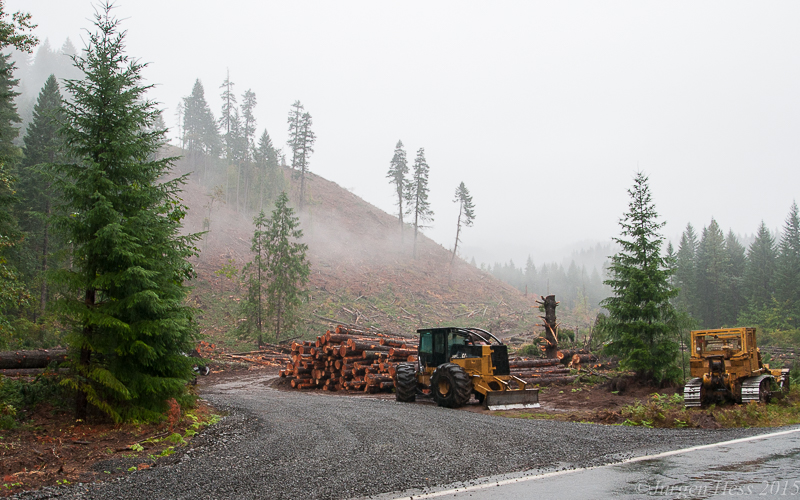
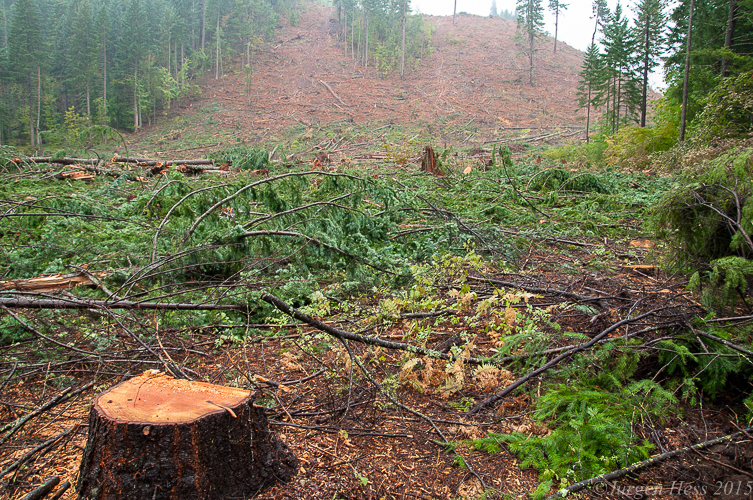

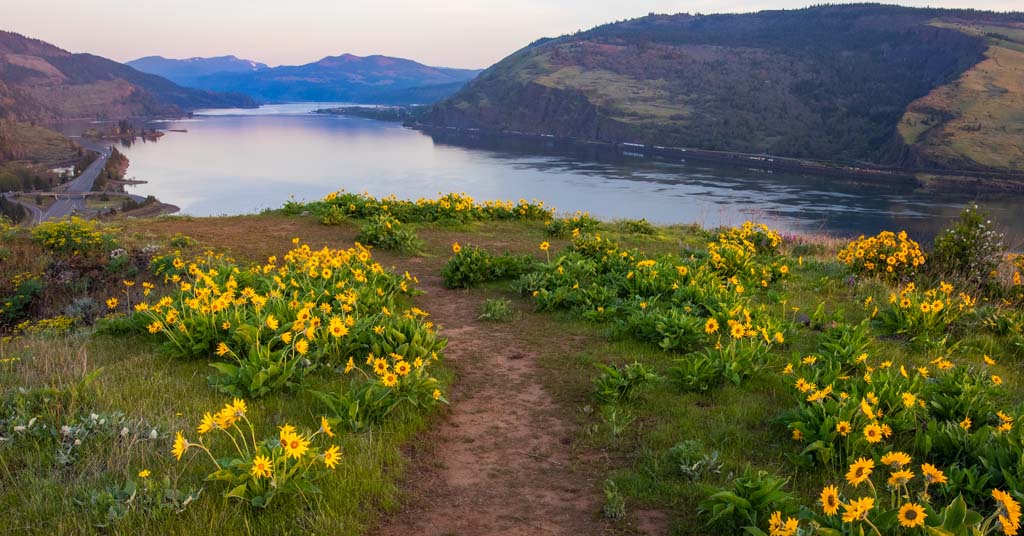
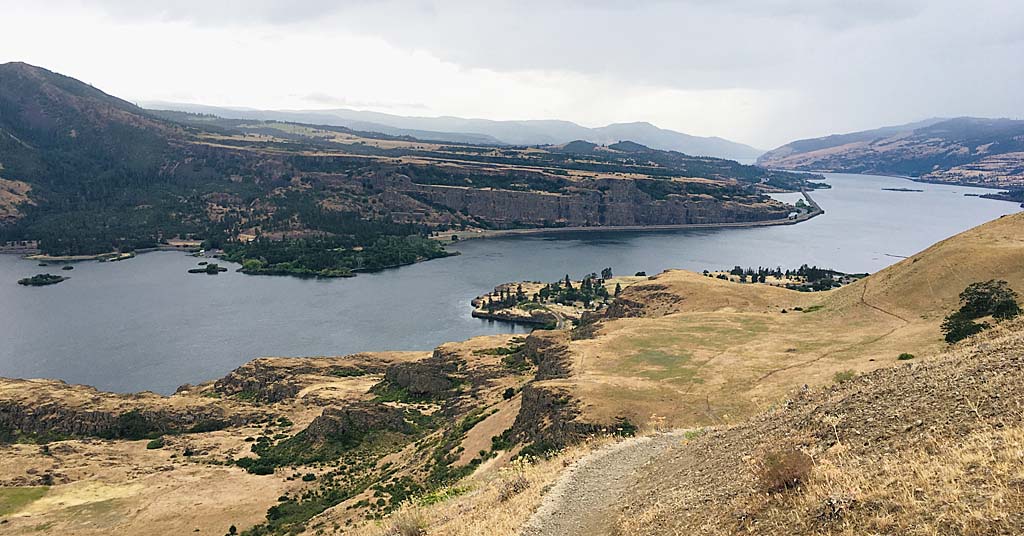
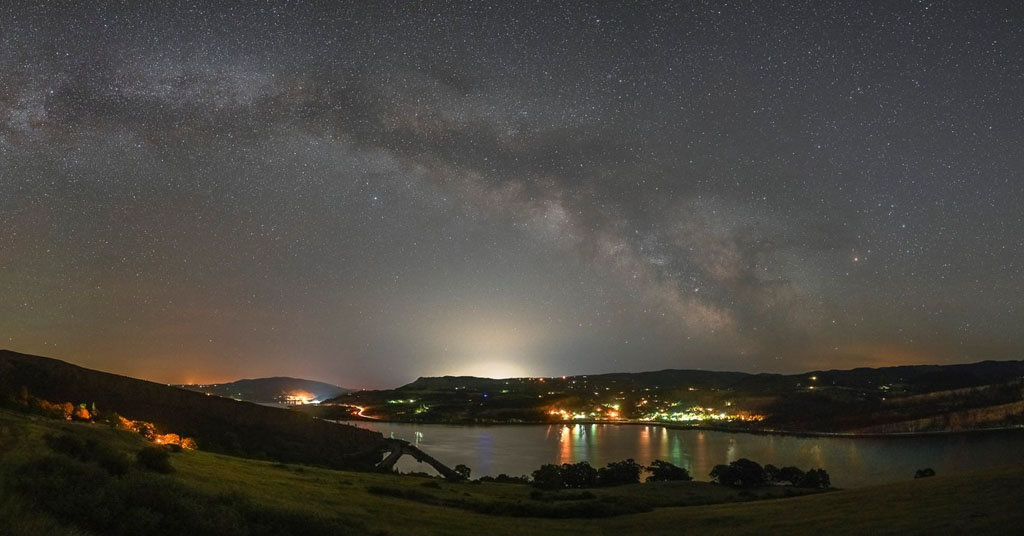
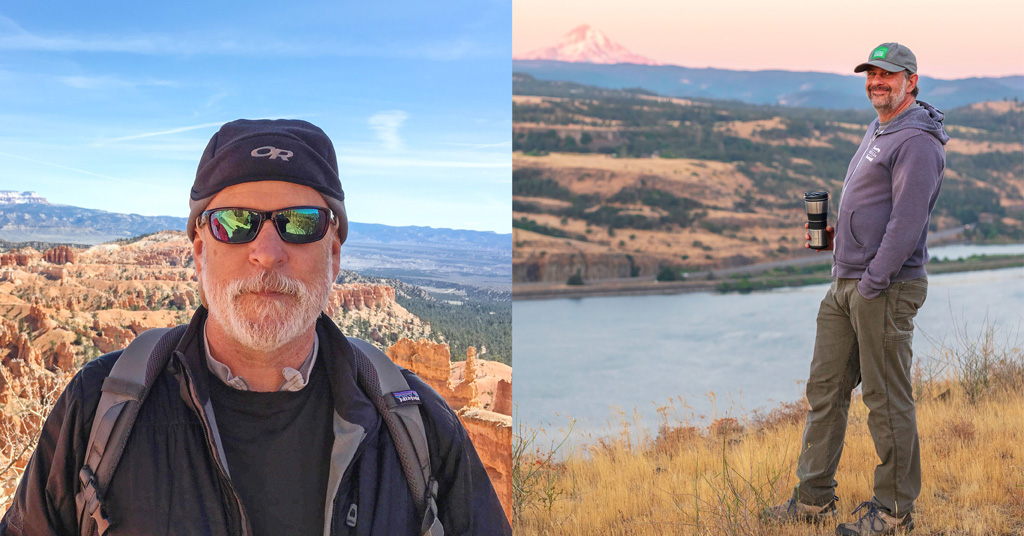



Thank you, Desmond Campbell, for this story. My brother and I share similar experiences when we were young, when big-tree campgrounds were common in the mid-Columbia region. Today we hiked the headwaters of Lost Creek not far from the old “Big Cedars C.G., where a very rare stand of ancient, giant western redcedars and Douglas firs still exist, even after a big forest fire and some selective logging maybe 80-100 years ago. We had to drive through at least 12 miles of clearcuts and tree farms–sterile and unfriendly to other forms of life–to reach the unmarked traill to this magnificent grove. We also stopped at the Moss Creek Campground on the way back and were disappointed to not see one remaining old-growth tree.
I appreciate your comment and wish that more people had some of our shared experiences. I think different decisions about forest management would be made if there were.
Thank you for bringing back wonderful memories for me as well. My family had many campouts at Big Cedars and Moss Creek. It makes me sad to see all the destruction. I really don’t understand the current thinking that we need to “manage” the forests, under the guise that it’s for fire suppression. And they rail on about opening up the National Forests for logging. They don’t seem to understand that there has to be a market for timber before we can cut more. Its just Cut baby Cut!
Let’s hope we can continue our fight to protect what’s left. Thank you for getting the truth out there.
The thought that my great grandchildren could climb the same tree as I did when I was a child is something that helps me to imagine a positive future. The history in one old growth tree just blows my mind. Thank you for reading and commenting.